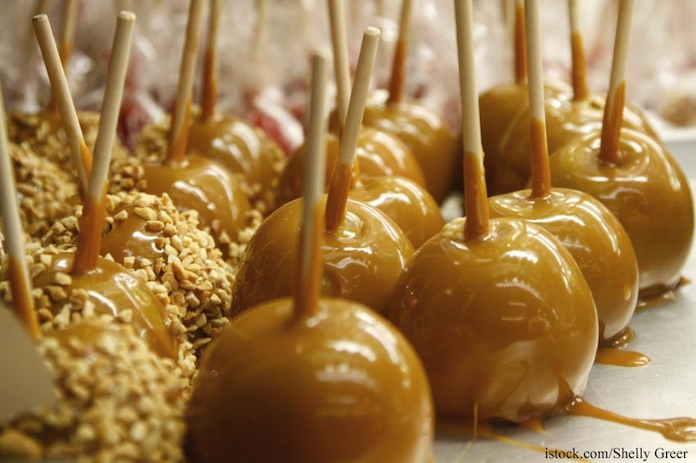In the CDC’s Weekly Morbidity and Mortality Weekly Report for January 25, 2019, a previously unreported Listeria monocytogenes outbreak associated with prepackaged caramel apples was announced. In late 2014 and early 2015, a large and deadly outbreak of listeriosis linked to prepackaged caramel apples sickened ate least 35 people. Thirty four patients were hospitalized. And listeriosis contributed to at least three of the seven deaths reported. Eleven of those cases were associated with pregnancy, causing three premature births and one fetal loss.

In the 2017 outbreak, PulseNet found a cluster of three Listeria monocytogenes clinical isolates with indistinguishable pulsed-field gel electrophoresis (PFGE) pattern combinations. That means that those three people were likely sickened with the same outbreak strain of pathogen from the same source. The CDC, FDA, and state and local health departments started an investigation.
The three patients lived in Michigan, Illinois, and Iowa. Illness onset dates ranged from October 15, 2017 to October 29, 2017. The three patients, all male, ranged in age from 55 to 71 years. All were hospitalized because they were sick.
Patients were asked to fill out questionnaires, asking them what they ate the month before they got sick. All three had eaten prepared prepackaged caramel apples purchased from retail stores. None of the caramel apples in question were available for testing.
Officials collected records at two of the three retail locations where the patients had shopped. All three sold the same brand of caramel apples, which was not named in the report. The product was packaged in clamshell plastic cases, each containing three caramel apples on a stick. No Listeria monocytogenes was found in these apples, but officials do not know whether the tested apples were the same lots as those consumed by the people who got sick.
The facility where the apples were produced was inspected. No significant food safety concerns were found. None of the environmental swabs yielded Listeria monocytogenes. Officials did find Listeria monocytogenes at one whole apple supplier, but it wasn’t the outbreak strain.
Because the caramel apples had a shelf life of 15 days, which had long passed by the time the patients were identified, there was no evidence to suggest an ongoing risk to the public. No public warning was issued.




